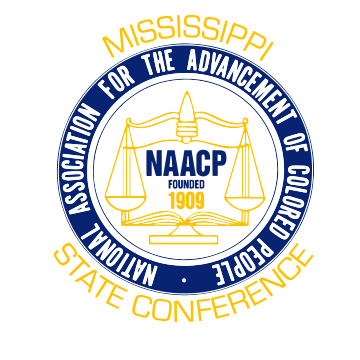Clarksdale Grows Weary of Lingering Cheating Probe
2015/05/20 – Records show MDE payments made to Caveon for Clarksdale investigation ended in January.
For the past year, the Clarksdale Municipal School District has operated under a shadow of suspicion cast by claims of widespread cheating first revealed by The Clarion-Ledger and confirmed by a preliminary state investigation.
The investigation initially was to end in August. Then in December. Then in February. Now it’s anyone’s guess. Each time the deadline recedes, the shadow grows longer and more oppressive for a school district seeking closure but getting only silence from the Mississippi Department of Education, which launched the probe on May 14, 2014, and has yet to issue its findings.
“They don’t tell us anything,” said Clarksdale School Board President Rob Tyner, a local attorney. “If they have all this evidence of widespread cheating in the Clarksdale Municipal School District, I think they’d want us to know so we can do something about it.”
Records obtained from MDE show payments to the contractor hired to conduct the investigation ended four months ago. When asked if that contractor, Utah-based Caveon Test Security, already delivered its findings to MDE, agency spokeswoman Patrice Guilfoyle declined to comment.
“The investigation is ongoing,” Guilfoyle said. “That’s all I can say.”
Also declining to comment on the Clarksdale investigation were officials at Caveon Test Security, referring all questions back to MDE.
The company further declined to speak generally about how long its investigations take or how long its customers usually mull Caveon’s findings before acting on them or releasing a public report.
MDE signed two contracts with Caveon. One, on May 16, 2014, for the preliminary investigation at a cost of $45,000. And one, a month later, for the in-depth probe that officially began in early August.
The second contract expired on Dec. 31. It cost $246,000. MDE paid in five installments starting on Sept. 15 and ending Jan. 20, records show.
The probe so far has netted two charges against one Clarksdale teacher, Francis Smith-Kemp, who faces a hearing next month to determine if she should lose her teaching license. Charges against other educators are likely, said state Superintendent Carey Wright at an April press conference.
When asked how much longer the investigation would last, Wright said then that she didn’t know. But in August, she had said that “MDE fully expects that the investigation … will be completed in less than one year from the date that it was initiated.”
Wright also pointed to cheating probes elsewhere – including Atlanta Public Schools – that took anywhere from six months to four years to complete. She said the Clarksdale investigation could go on longer, but it’s impossible to know for sure.
“It will be done when it’s done,” she said.
For comparison’s sake, Atlanta’s cheating scandal involved more than half of its 103 schools and nearly 200 educators in one of the nation’s largest districts. It took a team of special investigators appointed by then-Georgia Gov. Sonny Perdue 11 months to complete its probe, although the fallout continued for years as educators faced criminal charges and convictions.
A jury returned guilty verdicts for the last of the Atlanta educators in April.
Clarksdale’s investigation centers on one school, Heidelberg Elementary, and a handful of educators in a rural Delta district 17 times smaller than that of Atlanta. Its investigation has lasted more than 12 months.
‘Get it over with’
Meanwhile, MDE continues to withhold Clarksdale’s statewide test scores and accountability rating from the 2013-14 school year. The district also still faces the possibility of losing its $10 million Race to the Top grant. U.S. Department of Education officials say the agency could rescind its award if cheating allegations prove true.
“If somebody is guilty of an offense, bring it on. Let’s get it over with,” said Clarksdale Mayor Bill Luckett. “They’ve been holding this community in suspense for far too long. Surely this is not a terribly complicated situation.”
But it is complicated for MDE.
Because it’s the first major cheating investigation of its kind in Mississippi, education officials have had to learn as they go. And they quickly learned that they lacked some key powers needed to conduct such a probe – such as the power to subpoena people and documents.
The Legislature passed a law earlier this year granting them those powers, along with the ability to seek court orders enforcing subpoenas with noncompliant school districts. The law also requires principals to certify under oath that each statewide test was administered properly and, in the event they suspect otherwise, must report all suspicions to MDE.
“This is setting a precedent for future investigations, which I hope will be minimal,” said Mississippi Professional Educators Executive Director Kelly Riley. “I hope it will send a strong message to those educators who might be tempted to convince them that cheating is never appropriate.”
Wright said last year she’s eyeing several other school districts for future investigations, though she declined to specify which ones. It’s unclear when those investigation will start or whether they, too, will take more than a year to complete.
Riley believes the state is being appropriately cautious and thorough in its probe, but others say it’s dragging its feet and they’re beginning to wonder why.
“I don’t want to be critical, but justice needs to be swift,” said Sam Bounds, executive director of the Mississippi Association of School Superintendents. “If, as you go, the investigation uncovers evidence, certainly investigate that until you’ve done due diligence, but don’t keep looking for things if you haven’t found evidence.”
Improbable test scores
The Clarion-Ledger first uncovered claims of cheating at Heidelberg after the school’s meteoric rise in test scores propelled the former F-rated school to an A in just two years.
Yet test data obtained by the newspaper showed some of the top-scoring Heidelberg kids could barely read or do basic math when they advanced to Oakhurst Intermediate School just months later.
Students said teachers either provided them answers on tests or allowed them to turn in blank test sheets that later were filled in by somebody else.
One former Heidelberg student told The Clarion-Ledger her English teacher, Smith-Kemp, had read the answers aloud to the class during testing last year.
“She would say, ‘C for cat. D for dog. B for ball. A for apple,'” the student said, describing how Smith-Kemp provided students the correct multiple-choice response to each question.
That student had scored advanced in math and proficient in reading on the MCT2 but tested below grade level in each subject at Oakhurst.
The Clarion-Ledger is not naming students to protect the privacy of their test scores.
Smith-Kemp had denied any knowledge of cheating in her class or any other class at Heidelberg.
Another former Heidelberg student scored advanced on last year’s MCT2’s English language arts test even though she said she left about 20 bubbles blank on her Scantron sheet, which is the machine-readable paper on which students mark answers.
Answers not bubbled in are counted wrong. There are 60 questions total on the ELA portion of the fourth-grade test, meaning one-third of the student’s answers would have been marked wrong.
“I thought I wasn’t going to get advanced, but I did,” said the student, who in fifth grade tested on a second-grade reading level at Oakhurst.
Teachers said Heidelberg Principal Lowanda Tyler-Jones told them to help students during the tests. One told The Clarion-Ledger that Tyler-Jones instructed them to walk around the classroom and alert students when they got a wrong answer so they could correct it.
Another said Tyler-Jones locked herself in her office with the completed tests and bubbled in any blanks left by students on the Scantron sheets with the correct answers.
Both are violations of state testing policy.
Tyler-Jones has denied any cheating occurred during the end-of-year statewide assessments.
Clarksdale Superintendent Dennis Dupree has called the allegations baseless and unfair and lauded Tyler-Jones as a visionary leader who motivates the children to do their best.
The district conducted its own investigation after MDE had flagged Heidelberg for improbably high scores on the 2012-13 test. It found no evidence of wrongdoing.
“We’ve talked to the same people, and unless they got more out of them than we did, we don’t see where the cheating allegations come up,” said Jim Keith, an attorney hired by the Clarksdale School Board to assist with its interest in the investigation.
Keith expressed frustration with MDE’s lack of evidence or communication, saying it puts the entire district in limbo.
“It would be in best interest for everybody for this investigation to wrap up and for us to be able to respond to the allegations,” he said. “Parents and students and teachers and administrators, we’ve all got this cloud over our heads. It’s time to move on.”
Source: The Clarion-Ledger



